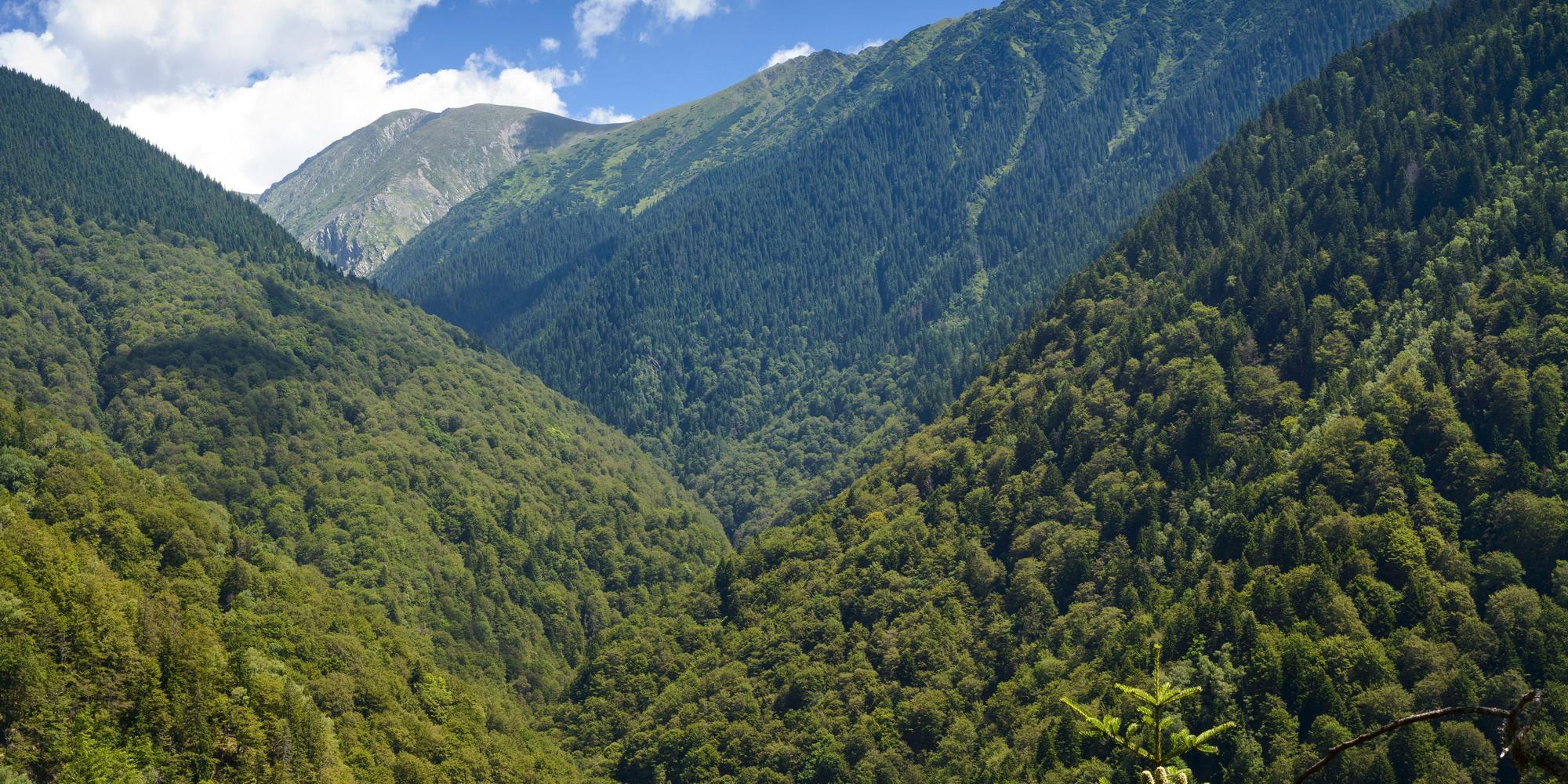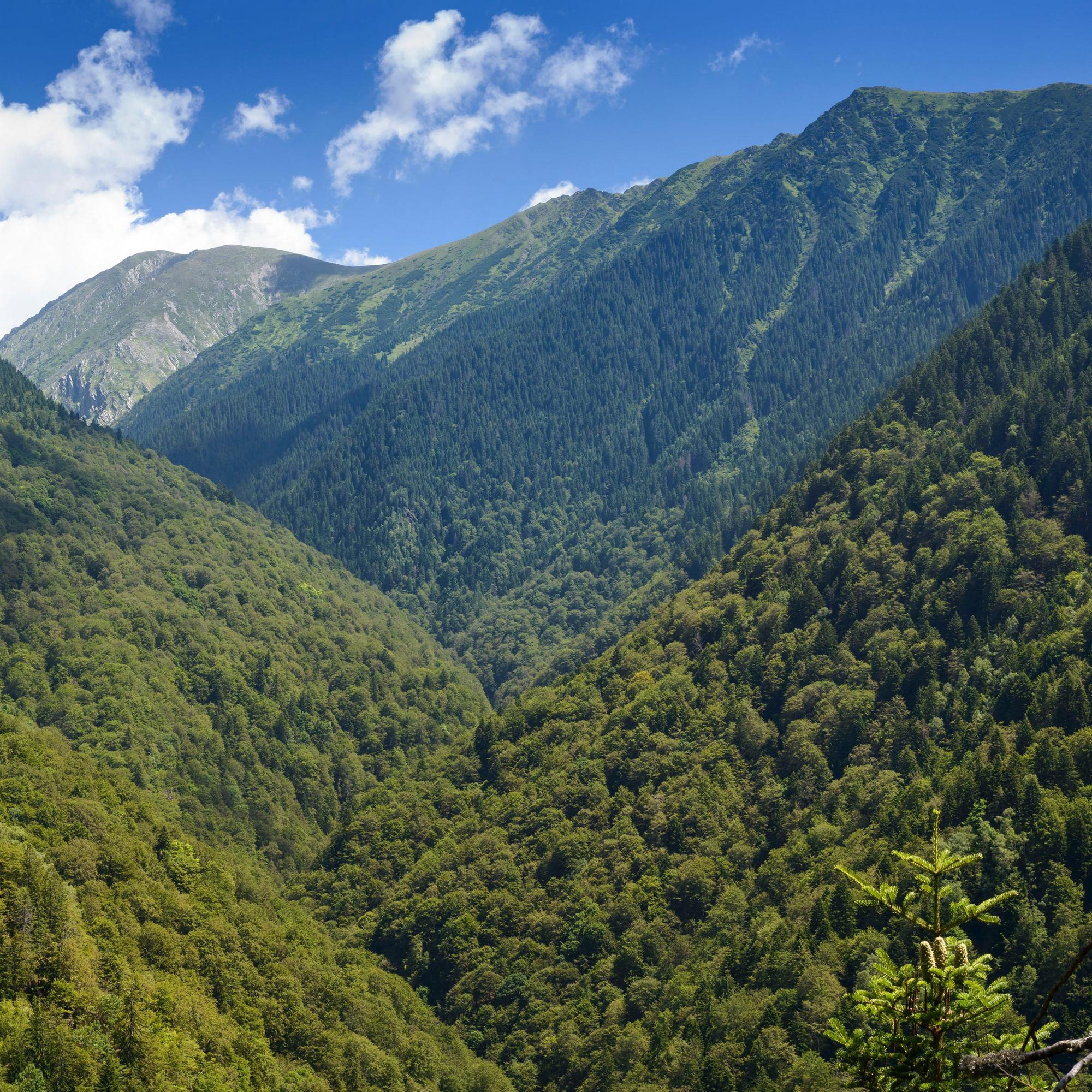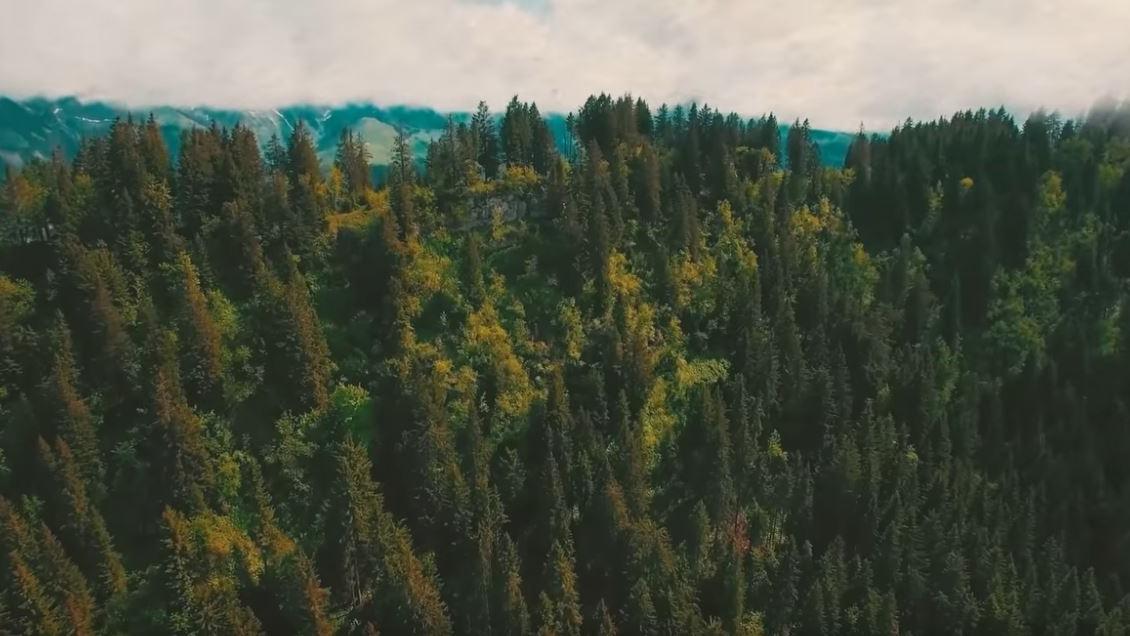Can forests really be all things to all people?
We have high expectations of our forests. They should provide diverse habitats, fulfil our wildly-romantic desires, act as carbon sinks and, at the same time, provide us with firewood and timber - cheaply and profitably, of course. But our expectations are not just high and diverse, they’re also contradictory. And they’re just as difficult to reconcile as everything the EU Commission envisages for forests in its various regulations and strategies, as well as under the European Green Deal.
02-24-22
Under the revised Renewable Energy Directive - a component of the European Green Deal - the burning of (wood) biomass will be classified as carbon-neutral. This will make it possible for EU member states to subsidise the burning of wood biomass for electricity and heat production as a climate protection measure.
Burning wood is not climate-neutral
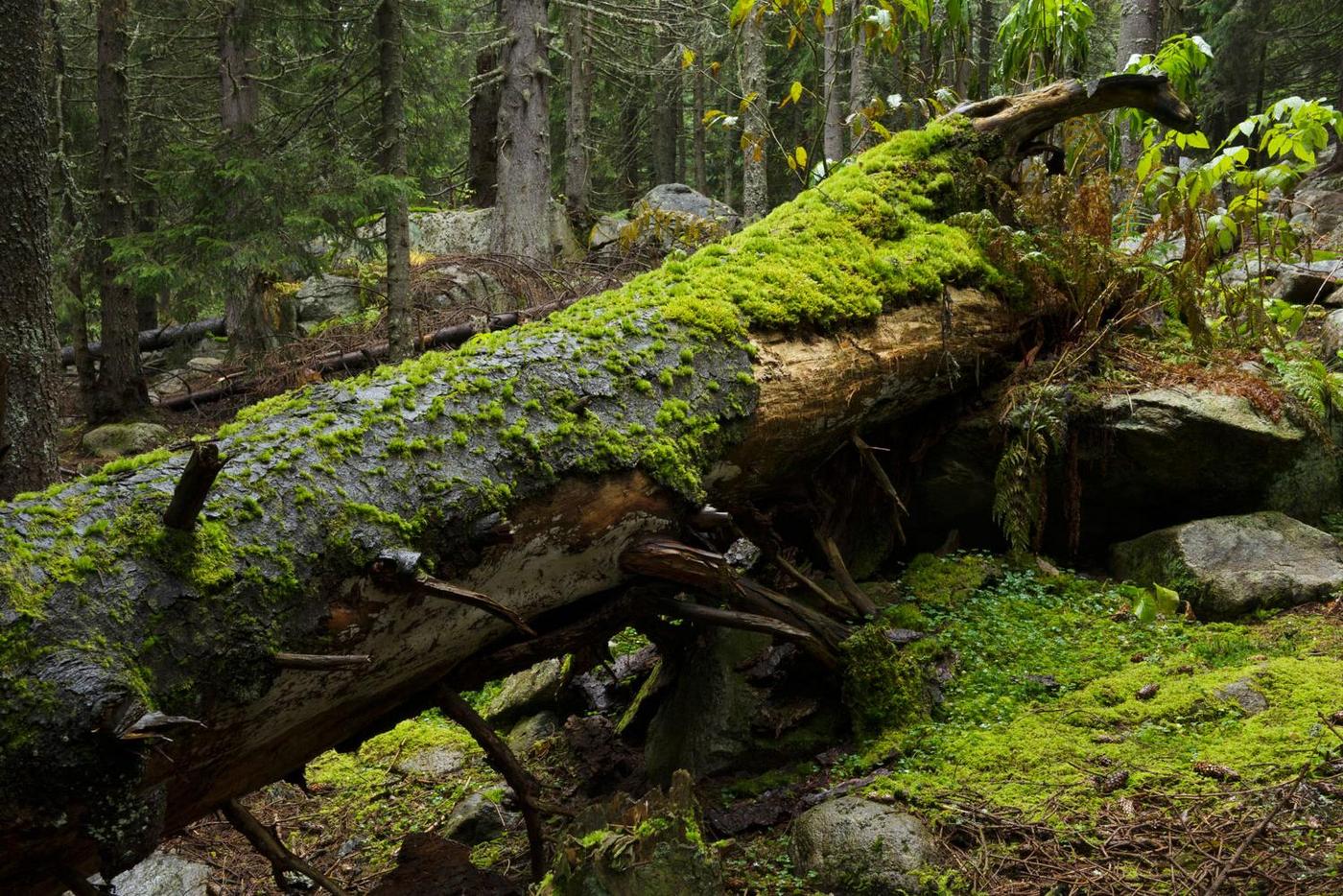
Dead wood is much better off in the forest than in the fireplace.
© Matthias Schickhofer/EuroNatur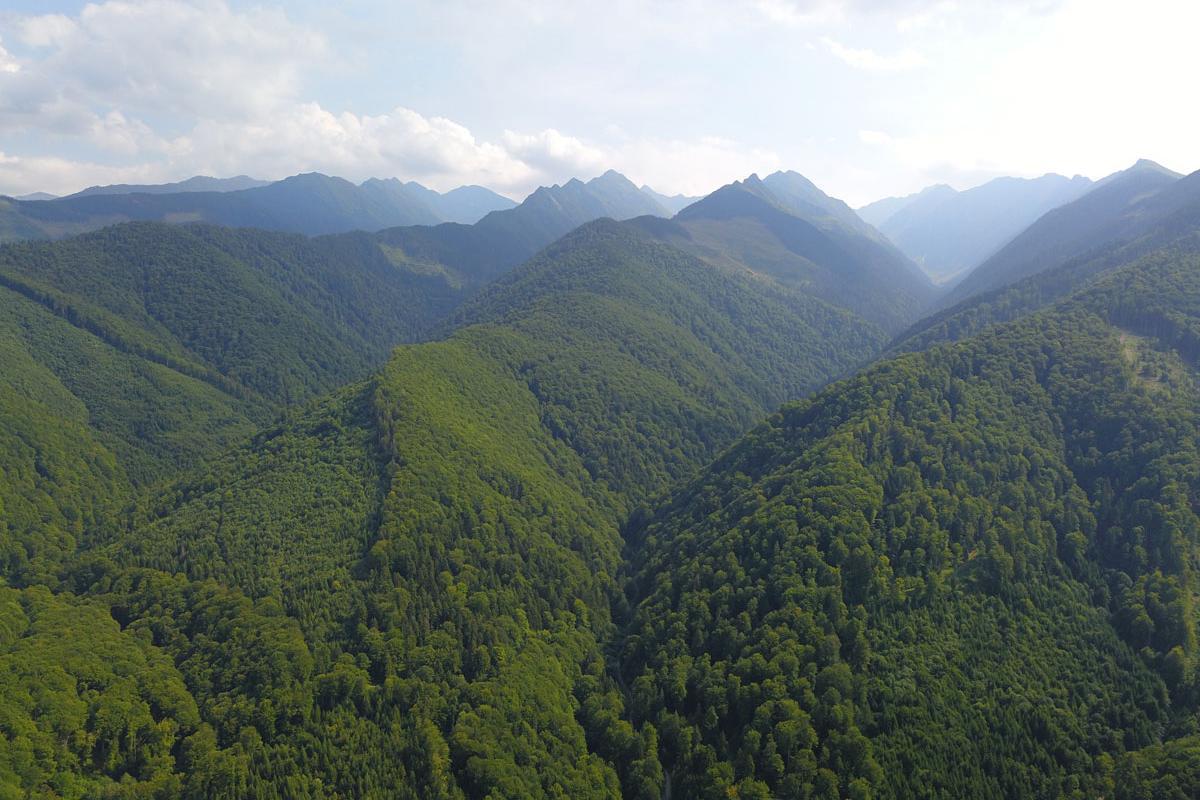
In the Romanian Carpathians there is still almost untouched forest wilderness. But it is disappearing more and more with each passing day.
© Agent GreenIt has been proven many times over that burning wood biomass is not climate-neutral; it’s explained very well in this e-paper.
Wood combustion is fundamentally not climate-neutral, and it contributes - mainly in the short term - to the greenhouse effect. Since wood has a much lower energy content than fossil fuels, significantly more of it has to be burned in order to produce the same amount of energy. By way of comparison, more carbon is emitted, for example, than when coal is burned.
What’s more, forests are highly efficient carbon stores. Old, functioning forest ecosystems in particular are important carbon sinks, storing carbon in the living tree stands as well as in deadwood and soil. Forests continue to absorb carbon even when they are more than 200 years old and this means that Europe's old growth and virgin forests - the primary and natural forests - are particularly important carbon reservoirs. At the same time, these forests are also species-rich and thus play a major role in preserving biodiversity. Romania’s primary and natural forests are an example.
It’s therefore unsurprising that, in its 2030 Biodiversity Strategy, the EU Commission plans to "identify, record, monitor and strictly protect" all remaining primary and natural forests in the EU. Working groups are currently discussing which types of forest should be considered primary and natural as well as what exactly "to be strictly protected" means.
It seems especially contradictory that - in Romania of all places - previously untouched, over 150-year-old forests are increasingly being cleared. Some of them are not just important protected areas at a national level, they also enjoy a high status internationally - both as part of the Natura 2000 network and as a UNESCO World Natural Heritage Site. (Link to a report about the current situation in Romania)
One can only assume that the aim here is to use the time between now and 2030 to degrade valuable forests - which under EU law would have to be strictly protected - to the extent that further logging for the subsidised production of wood biomass will be able to continue unhindered. But who would dare to suggest such a thing...?
Stop the fragmentation of forests
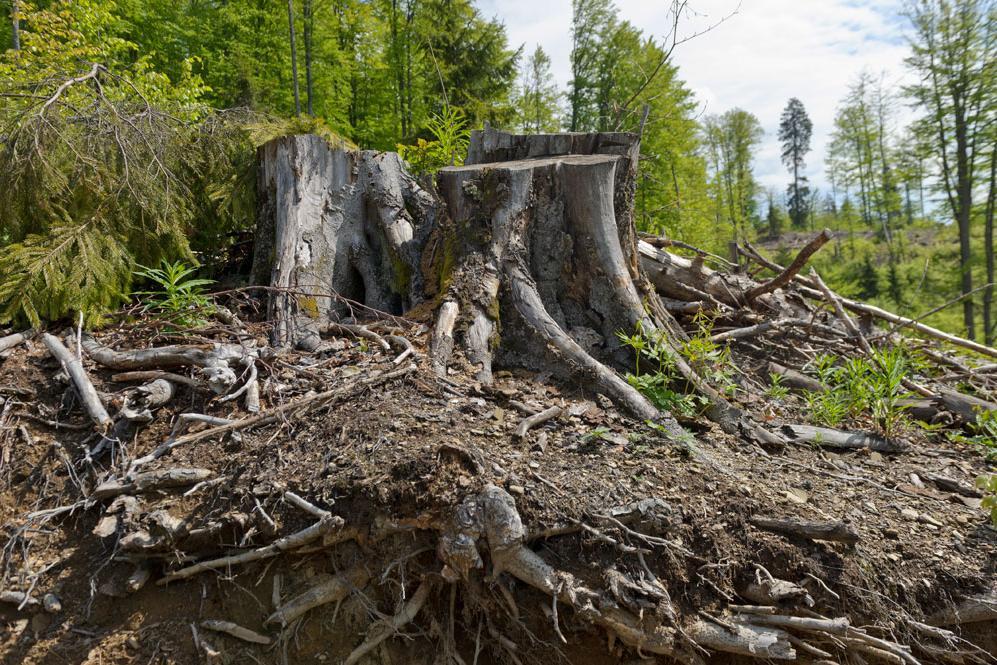
Tree stumps are the visible witnesses of forest destruction in Romania.
© Matthias Schickhofer/EuroNaturMany questions still need to be answered, definitions have to be found and, above all, ways must be identified to implement protective measures as well as to carry out the monitoring necessary. The EU usually only provides the framework for this; the finer details are worked out at national level. So, it's fair to assume that there’s still a lot of talking to be done and that, at first, there’ll be little action.
But it’s also clear that the EU cannot protect its forests in line with the objectives of the EU Biodiversity Strategy 2030 whilst simultaneously widening their use for wood biomass fuels as part of its revision of the Renewable Energy Regulation. It’s likely that the increasing use of wood biomass for energy production will compromise the many different functions that forest ecosystems have - and at the same time undermine the "European Green Deal" and the commitments to biodiversity preservation that are contained within it. Until all primary and natural forests in Europe have been mapped, a logging moratorium must be imposed on them all - and this should include potential primary and natural forests too. Otherwise, it’s likely that the estimated 3% dispersed share of the EU's total forest area that they occupy will be even further diminished and fragmented.
Primary and natural forests in particular must be protected so they can fulfil at least some of the expectations we have of them - but a forest can’t be all things to all people all of the time.

Author: Annette Spangenberg is Head of Conservation at EuroNatur. She lives in a house that is heated by wood among other things, loves campfires, and values the recreational qualities of near-natural forests. Her own expectations of forests are also diverse and contradictory.
We welcome your opinions on this blog post. Send Annette an email with your thoughts on the topic: annette.spangenberg(at)euronatur.org
Read also our other blog posts



